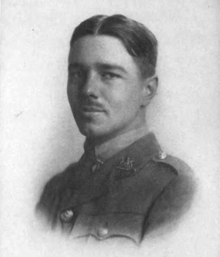Dejad que todo el mundo alabe su oficio,
el hombre de iglesia, el astuto vendedor.
Que miles alardeen de rango o de riqueza.
Yo alabo mendigar: no hay plan mejor.
Cuando veo rebaños que están flacos,
malas cosechas y niños que lloran,
granizo que cae, vientos que arrecian,
mis campos están secos, y a mí no importa.
Yo descanso alegremente bajo el sol
pensando solamente en historias que contar,
paz en la mente en paz, ni rentas ni tributos:
no hay oficio mejor que mendigar.
De vez en cuando me abrasa la sed.
Luego de un día pido para tomar.
Un día con vino, un día sin nada.
Dios bendiga al que inventó limosnear.
Uilliam English, Irlanda, 1709-1778
Poeta y fraile agustino, también conocido como Liam Inglis.
Versión del inglés © Gerardo Gambolini
Sobre la traducción del gaélico de Pádraig J. Daly
imagen: s/d
The Beggar
Let
everubody praise his trade,
The
clergyman, the wily merchant.
Let
thousands boast of wealth or state.
I praise
begging as the best plan.
When I see
an ailing flock,
Crops gone
bad and children wailing,
Hail
descending, winds blowing rough,
My fields
are dry and I am carefree.
Happily in
the sun I rest
With not a
thought but storytelling,
My mind at
peace, no tax or rent:
The best of
all the trades is begging.
Now and
then I’m parched with thirst.
A day goes
by and I call for porter.
A day with
wine, a day with none.
God bless
beggary’s inventor.
Iba yo a la feria de Curreeny
el día décimo de agosto, y al andar
encontré a una joven sola en el camino,
que era dulce y bella de mirar.
Los rizos le caían en los hombros
enmarcando su cara inmaculada,
las servillas le cubrían los talones
y Cupido bailaba en su mirada.
Le hablé a esa deslumbrante criatura
apretando mi sombrero con la mano.
Soñé, como presa de un ensueño,
que libábamos al borde de aquel prado.
“La belleza y el amor de toda Irlanda
son tu rostro, tu figura y porte fino.
Cree, amor, esos halagos.
No soy un infame libertino.”
“Soy una mujer que quedó sola —
sin guía estas colinas debo atravesar.
Dejadme, en el nombre de María.
¿O queréis mi buen nombre mancillar?
No soy ninguna joven alocada
aunque he dejado a mi padre muy atrás.
Oh clérigo, olvidad vuestras lisonjas
y seguid a la feria en soledad.”
Di un salto adelante al oír eso
hacia aquella que atrapó mi corazón.
Defendido como estaba su castillo,
al final la fortaleza ella rindió.
Ayudado por sus besos ardorosos,
al contento más dulce la llevé.
Luego la guié por la montaña
y el camino hacia la feria retomé.
Llorando arrepentida dijo ella,
“Mi amor y mi pasión os entregué,
no me dejes así, mi buen amigo,
dondequiera que desees te seguiré.
Si tu ejército audaz ha conquistado
mi ciudad y mi puerto y guarnición
con la fuerza del cañón para mujeres,
ahora donde vayas iré yo.”
Uilliam English, Irlanda, 1709-1778
Versión del inglés © Gerardo Gambolini
Sobre la traducción del gaélico de Pádraig J. Daly
Going To The Fair At Curreeny
Going to the
fair at Curreeny,
On the
tenth day of August, you’ll know,
I met, all
alone on the roadway,
A girl
young and sweet to behold.
Her hair
curled down to her shoulders,
Framing her
lily-white face,
Her
slippers covered her ankles
And Cupid
danced in her gaze.
I spoke to
this ravishing creature,
With my hat
firmly clutched in my hand.
I dreamt in
my dayreaming fashion
That we
supped at the edge of the land.
“The beauty
and love of all Ireland
Is your
person, your face and your gait.
Believe my
flattering speech, love,
I’m not
some unconscionable rake.”
“I’m a
solitary female left lonely,
Travelling the
hills without guide.
For the
sake of Mary, now leave me.
Do you mean
my good name to destroy?
I’m not
some easy young hussy,
Though my
father I’ve left far away.
Stop your
cajolery, cleric,
And be off
with you now to the fair.”
At this I
took a leap forward
Towards the
one who had captured my heart.
Though her
castle was stoutly defended,
She yielded
the fortress at last.
With the
help of her own warm kisses,
I brough
her to sweetest content.
Then I
guided her over the mountain
As off
toward the market I went.
Said she,
as she wept and lamented,
“My good
friend, don’t leave me like this,
I’ve given
my love and affection.
I’ll follow
wherever you wish.
Since you
conquered, with your bold army,
My
garrison, city and port,
With the
force of your guns against women,
I’ll go now wherever you go.”



_Martin+Baird.JPG)





